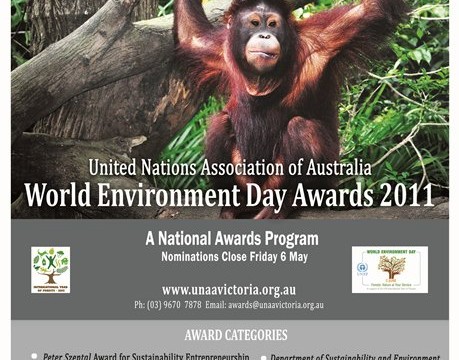Did you know that 2011 to 2020 is the United Nations Decade of Biodiversity, that this year is the International Year of Forests, that 22 April is Earth Day and 5th June World Environment Day, celebrated since 1972? If yes, you belong to a relatively small group of ‘insiders’ and if not, why not?
Earth Hour on the other hand – the one day a year where we are prompted to symbolically turn our lights off for one hour is known by millions around the world. How come the latter has become a global phenomenon and yet directly related, mature environmental awareness raising initiatives lack momentum?
The United Nations has celebrated World Environment Day on the 5th June since 1972. So how can we focus the millions of people who symbolically turn their lights off on rapid action for the environment, including forests and biodiversity?
Apart from collaborating with Earth Hour organisers to ensure it is more than a feel good exercise (more about this here), we can learn and transfer those social marketing lessons. Any social campaign that moves us to change our habits needs to:
- be easy and come with ‘how-to-implement’ tools
- be visible so it can grow quickly
- make it personal
- be social (appeal to the ‘champagne environmentalist’ as well as those who have been at it forever…)
- be impartial.
Many initiatives prepare comprehensive, informative and easily accessible materials but fall short on ‘selling’ the materials. In other words, the social marketing component that ensures visibility and take up is missing.
We can make biodiversity personal for each and every one of us and start by nominating somebody or an organisation for the World Environment Day Award.
“Each year on World Environment Day, June 5, the United Nations focuses world attention on the environment, and in particular, on positive programs that work towards protecting or restoring the world’s natural heritage. The United Nations Association of Australia (UNAA) actively promotes World Environment Day through the annual national World Environment Day Awards. In 2011, the Awards support the International Year of Forests and UNEP World Environment Day theme ‘Forests: Nature at your Service’. The national awards program invites nominations from individuals, organisations, community groups, schools, businesses and the media across Australia whose work demonstrates environmental leadership. For more information including award categories and entry criteria, please visit our website.”
And why are biodiversity and forests a personal issue, some would say a human right? According to the UNAA
- Forests cover one third of the earth’s land mass (31%), performing vital functions and services.
- 1.6 billion people depend on forests for their livelihoods.
- Forests play a key role in our battle against climate change, releasing oxygen into the atmosphere while storing carbon dioxide.
- Forests provide a home to more than 300 million people worldwide, and a
- Forests are home to 80% of biodiversity on land.
Yet global deforestation continues at an alarming rate — every year, 13 million hectares of forest are destroyed. That is equivalent to 36 football fields a minute. (quote World Wildlife Fund, 2009)
Many precious species face extinction. Biodiversity is being obliterated.
What are we waiting for? Let’s do something.
UNAA World Environment Day Awards 2011 from UNAA Victoria on Vimeo.
>Ulrike Schuermann is an experienced international consultant & social profit coach. Her main areas of interest are social investments, income development for social profits; sustainable development and business and human rights. She regularly facilitates workshops for social profit organisations and corporations and can be contacted at enquiries@momentumpartnerships.com
